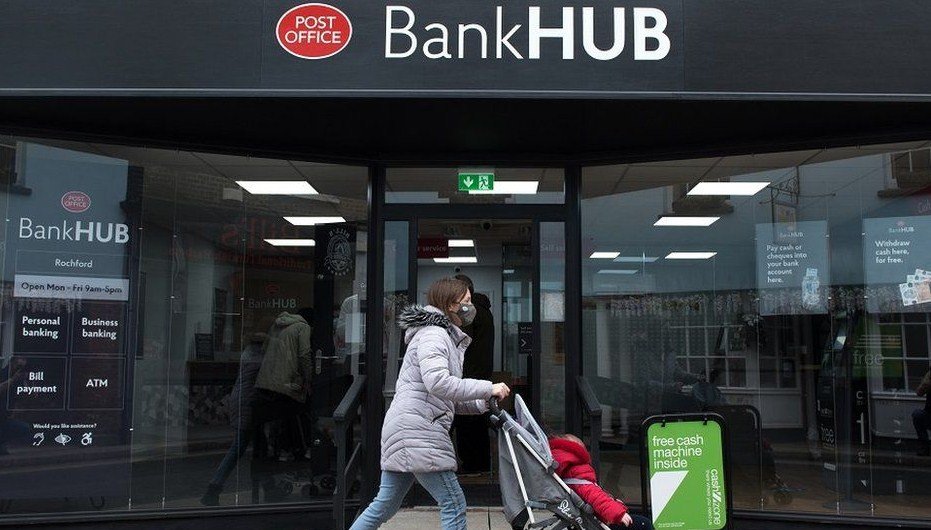Northern Ireland is set to get its first four shared banking hubs in Kilkeel, Dungannon, Ballynahinch and Carrickfergus. The hubs will allow customers of any bank to access their accounts, deposit cash and cheques, and withdraw money at any time. They will also have representatives from each of the major banks visiting once a week to deal with more complex enquiries.
Banking hubs aim to fill the gap left by branch closures
The banking hubs are part of a UK-wide initiative led by the Post Office, in partnership with the banking industry and consumer groups, to protect access to cash and banking services in communities where the last bank branch has closed or is at risk of closing. According to the Post Office, more than 4,000 bank branches have shut across the UK since 2015, leaving many people and businesses without convenient access to cash and banking services.
The hubs are designed to offer a range of services that are not available at Post Office branches, such as business banking, mortgage advice, and financial inclusion support. They will also have free-to-use ATMs, self-service machines, and video links to access specialist services.
The Post Office says the hubs will complement its existing network of 11,500 branches, which already offer everyday banking services to 99% of UK personal bank customers and 95% of business customers.
Northern Ireland welcomes the new banking hubs
The four new banking hubs in Northern Ireland are expected to open by the end of 2023, subject to finding suitable premises and securing local support. They will join 13 other locations across the UK that have been earmarked for shared banking hubs, including four in Scotland and nine in England.
The announcement has been welcomed by local politicians, business groups, and consumer advocates, who say the hubs will provide a lifeline to rural and urban communities that have been left behind by the digital transformation of banking.
Economy Minister Gordon Lyons said: “I welcome this initiative which will help to ensure that people across Northern Ireland have access to vital banking services. This is especially important for our rural communities and small businesses who rely on cash transactions and face-to-face support.”
Retail NI chief executive Glyn Roberts said: “This is a positive step forward in addressing the serious problem of rural bank branch closures and the decline of free-to-use ATMs. Retail NI has been campaigning for a number of years for the establishment of shared banking hubs and we are delighted that four towns in Northern Ireland have been selected for this pilot scheme.”
Consumer Council chief executive John French said: “We are pleased to see the Post Office taking a proactive approach to ensuring consumers and businesses in Northern Ireland have access to cash and banking services. We hope that the new banking hubs will meet the needs and expectations of the local communities and provide a sustainable solution for the future.”
Banking hubs are part of a wider effort to protect access to cash
The banking hubs are part of a wider effort by the government, regulators, and the banking industry to protect access to cash and ensure that no one is left behind by the digital shift. According to the UK Finance, cash payments fell by 35% in 2020, as more people switched to online and contactless payments during the pandemic. However, cash still remains a vital payment method for millions of people, especially those who are elderly, vulnerable, or financially excluded.
In May 2021, the government announced a new law to protect access to cash, which will give the Financial Conduct Authority (FCA) the power to ensure that the UK’s cash infrastructure is adequate and resilient. The FCA will also be able to designate which retail outlets must offer cashback to customers without requiring a purchase.
In September 2021, the Bank of England launched a new strategy to support the UK’s cash system, which will involve working with the industry and other stakeholders to improve the efficiency, reliability, and security of cash distribution. The Bank will also monitor the demand and supply of cash and intervene if necessary to ensure that cash remains widely available and accepted.
The banking industry has also committed to invest in the cash network and provide alternative ways for customers to access cash and banking services. For example, UK Finance has launched a new website called Access to Cash, which allows customers to find their nearest ATM, Post Office branch, or bank branch. The website also provides information on how to request cash delivery, withdraw cash at retailers, and use digital banking services.

